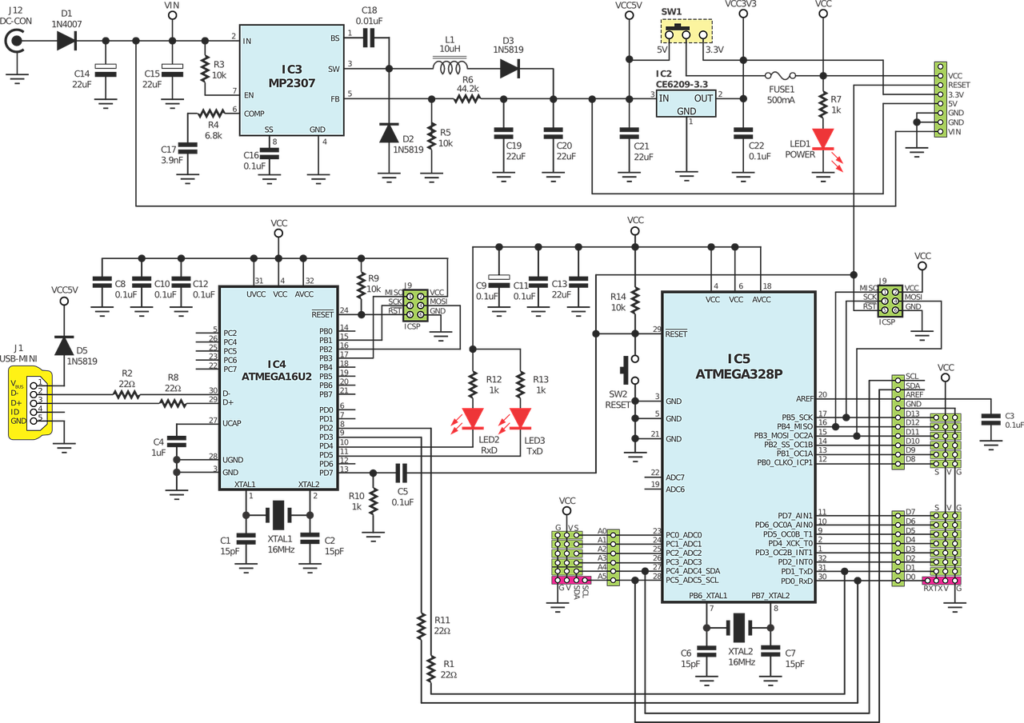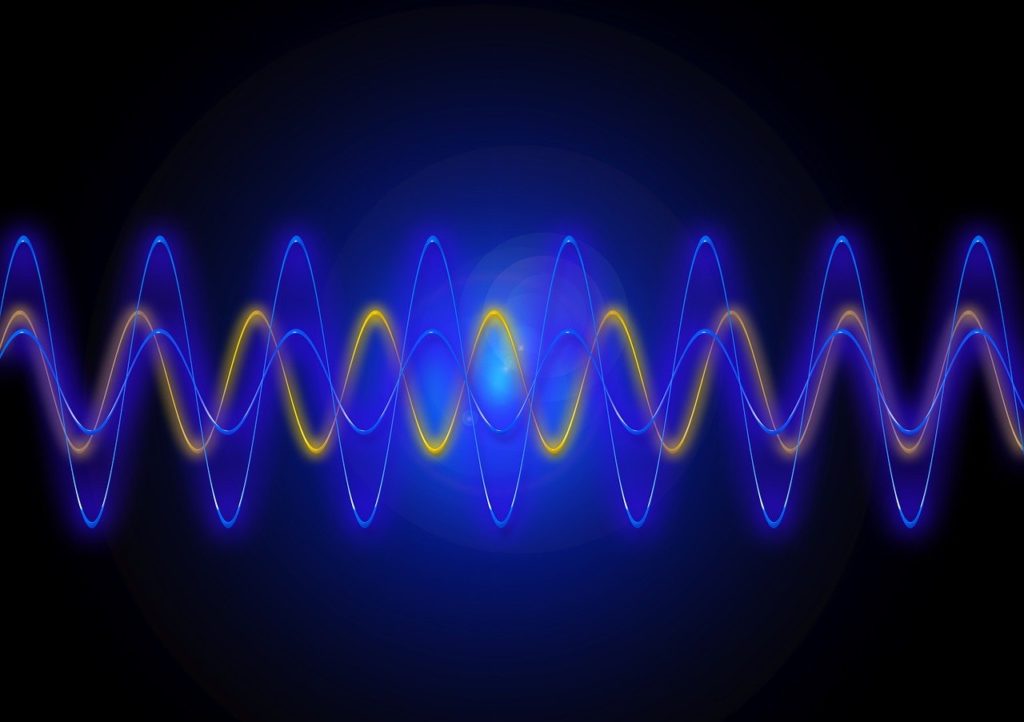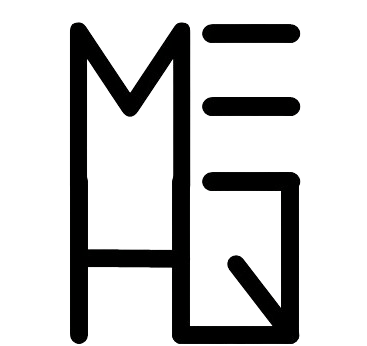A very common decision for students to make is to either study mechanical engineering or pick electrical engineering. These are definitely two very well respected engineering fields, so in this post we will go through these options for anyone who is making this decision. Its Mechanical vs Electrical Engineering!
First, if you’re looking to launch your own blog and start writing articles yourself, no matter what the subject, you can launch your blog with Bluehost for just $3.95/month.
Start creating content and launch your blog with Bluehost.
There is absolutely no right answer for everyone to decide between these two fields, and that is not the purpose of this blog post. We are not going to give an answer as both of these disciplines have amazing job opportunities in various sectors and offer high salaries.
We will explore the things they have in common, how the curriculum differs and their respective careers. You can use this to become more educated on the subject and hopefully make the best decision for your future.
Curriculum
To start at the beginning, if you have taken high school physics, you can think about what you liked about it, the electronics aspect, i.e. circuits, or the mechanical parts which would have include forces, momentum, energy, projectile motion, etc.

Do not put too much emphasis on this as you would have only received partial exposure to everything, but it is a good starting point to direct you towards which strand of engineering would suit you better.
When you think about the curriculum, it should be a simple decision, which subject is for you?
Programming, electronics and circuits, signals and electromagnetic waves, or, would you enjoy testing various forces in complicated systems, air/water fluid dynamics, thermodynamics and/or the transfer of heat?
There is no doubt that each curriculum is quite different, but bear in mind that they do have some things in common, which we will go through. You can always learn new skills in any field using on online platform like LinkedIn Learning, certifications are earned at then end of the courses and it is free for the first 30 days!
Electrical Engineering
To sum it up, electrical engineering can be described as being more “magical” than mechanical engineering. This is a feeling that you get when an antenna starts sending signals without wires, or a circuit that you are working on finally lights up that LED, as there are no physical connection between the elements.

You definitely cannot see wireless signals moving in the air, or electrons moving through wires. You must understand the fundamental physics behind what is going on and be familiar with the equipment used to analyse what is happening.
Mechanical Engineering
The same cannot be said for mechanical engineering, as while completing your undergraduate degree you will analyse engines, fluid in motion through pipes and motion and forces on complex systems using software programs like AutoCAD, Revit, Inventor and Fusion 360. It is possible to visualize these movements more, and you can physically see them working.
Math
A question that is always asked when considering any form of engineering degree is, “Will I have to use much math?”.
Both disciplines are quite similar, and the math that is involved in both of them is more intense than nearly all other engineering courses. Expect to learn math at a calculus level.
Calculus is used in mechanical engineering to analyse systemic vibrations using differential equations, to analyse rotating objects and heat flow. It can be used to calculate how difficult it is to rotate and object around a point, whether it be at the end or in the center, this is known as inertia.

Electrical engineering uses calculus to show how current will pass through a circuit with capacitors, resistors and inductors, and also when testing FM and AM radio signals.
Electromagnetic waves are usually analysed using calculus and how they are generated from current passing through a wire among other things.
This may have already been in high school physics, but calculus would nit have been used unless you took AP physics C.
If you have a love for mathematics then you are in luck because both of these disciplines have a great deal of math included. If you decide to go with electrical engineering and do enjoy a high level of math, RF could be an option worth considering.
Radio Frequency
The wireless communications concentration of electrical engineering is known as Radio Frequency (RF). In this concentration there will be a more in-depth view of antennas, wireless systems and more, so these classes will be very calculus and math intensive.

If you are not as interested in being as heavily involved in mathematics at a higher level, rest assured that calculus will not be in every class you take in either one of these degrees. However, we advise that it still is very present in both curriculums and to be successful or even enjoy these courses you should be somewhat familiar with and/or enjoy math.
Mechanical vs Electrical Engineering
Electronics and circuits classes are included in the mechanical engineering curriculum, whereas there are no mechanical engineering modules involved with electrical engineering. Mechanical engineers (myself included), do not generally enjoy the electronics classes as it is not a topic that they are interested in.
Regardless, all mechanical engineers will have to take around two electrical engineering classes, the content of which actually covers about four electrical engineering classes! These classes are simplified and condensed for mechanical engineers as they will go through the curriculum in less detail but faster.
As mechanical engineers do take some electrical engineering classes, this allows them to focus or concentrate on mechatronics.
Mechatronics
Mechatronics is where electrical meets mechanical engineering with a little bit of computer engineering thrown in as well for fun. Choosing this will involve learning more about circuiting and programming, which will allow you to work on robotics among other things.
Instead of just designing something mechanically or structurally, this will allow you to design, build, circuit and code it to perhaps sense and go around obstacles or whatever the specification calls for.
Using this information, if a person were to like electrical and mechanical engineering exactly the same, a good suggestion would be to choose mechanical engineering, and then focus on mechatronics.
This way you will be exposed to both fields, you will possess a good background for potential jobs in the future and if you pursue a masters degree, you will find it easier to decide what direction to go in as you will have experienced both areas. Again, there is no correct answer for everyone just options!!
Careers
A common question is, “if I would like to work on this certain “thing”, should I study mechanical or electrical engineering?”. Sometimes the question is justified, and other times it is very difficult to answer that question.
Alternative energy
If you want to pursue alternative energy for example, when you apply for a company that works with alternative energy you will see both engineering disciplines working there.
Wind energy
If you decide that you would like to work in the wind energy field, but which part of wind energy are you referring to?
Would you like to work on delivering and generating huge amounts of electrical power? Would you like to take classes on how highly powered systems work like generators, motors etc.?
Maybe you have a passion for analyzing the structure of wind turbines, as in what shape for the blades will generate more rotation from wind? For this you will need to have knowledge of fluid mechanics with regards to air. Perhaps you would like to help with the development of the machines that are used on wind turbines, this is a different aspect of the wind energy field again.
Solar energy
It is the same case for solar energy, would you like to work on the solar panel circuitry, the distribution of the electrical power that is created from them? Or would you like to work on manufacturing and designing the actual panels? Maybe you would like to work with the lenses that focus and track the sunlight, so on and so forth!
Satellites
Would you like to work on satellite communication? Maybe the remote sensing system that lives on the satellite, maybe the sensors on board to take measurements? This is all electrical.
Mechanical aspects of satellites would be detecting the temperature changes during a satellites orbit, the satellite’s vibrations to test and see if anything is damaged. Maybe something as little as a gimbal that moves an antenna needs to be designed by mechanical engineers.
When an antenna is tracking another antenna, the gimbal that it sits on has 3 axes of rotation. The antenna would be mounted on top of this gimbal to allow it to move to be able to connect with the receiver.

Once the receiver is in position then everything will work, however, if the receiver and the antenna are out of line, then the gimbal will have to move to align them.
Electrical engineers would test the signals that give commands to the gimbal and tell it how much to move, and then mechanical engineers would implement the gimbal to move as efficiently and accurately as possible.
Electric Cars
If you would like to work on something cool and futuristic like new electric automobiles that feature autopilot. Electrical engineers will be involved to implement sensors, program the vehicle to move depending on the sensors and focus on any electronics or highly powered circuitry that the vehicle utilizes.
The motors, structure and design of the car with regards to safety, even the aerodynamics plus the development of the actual car parts are all the responsibility of mechanical engineers.
Human Prosthetics
Would you like to focus on human prosthetics? This would involve analyzing the electrical signals received from people’s muscles, program the signals to send commands to the prosthetic to work in a certain way, an example of this will be a prosthetic arm/hand grabbing a can of your favorite beverage.
Mechanical engineering would then be involved to ensure that the prosthetic limb can apply the correct amount of pressure to pick up the can without dropping or breaking it, and can withstand external forces without breaking itself.
This is mainly what biomedical engineers would be passionate about working with, but both mechanical and electrical engineers are also involved in these projects.
Something as simple and as common as a printer that you would see in any office combines both disciplines to enable it to work. Printers have a multitude of electronic components and signals that allow it to work, but inkjet printers have moving parts that must be very accurate to place the ink in exactly the right place.
The same methodology is applied to 3-D printing, there needs to be precise placements particularly when the 3-D printer is being used to create important objects that have very important functions like organs. Mechanical engineers would have to play a part in creating and designing these systems.
The list is endless, you could refer to aircraft, robotics, rockets etc. etc. etc.!
It’s YOUR Career
A vast number of projects require the input of both mechanical and electrical engineers, it is actually very rare to see a project that requires just one of these disciplines. It is important to keep in mind that it is never a decision of which field is better than the other, or which field is better or related more to one sector.
Your career must always be about what YOU will enjoy more! It is always important to do something that you enjoy and that you have interest in and you can gauge your interest towards each field using the examples discussed above.

There are certain applications that exist which involve only one discipline, but this is usually a very specific project. For example, if you wanted to just improve the efficiency of an internal combustion engine you would not contact an electrical engineer!
It helps to know which discipline that you would like to work and whether it’s going to be aerospace, automotive, biomedical etc. and also what part of projects that you would be the most passionate about working on.
This field/sector will become a huge part of your everyday life, try to ensure that you are going to be happy during the path of making a career in one of these disciplines, and enjoy the work that you will do everyday.
This post was directed towards mechanical vs electrical engineering, however there is no doubt that other engineering fields are essential for most careers and projects in the world today as everything is multidisciplinary!
Thank you very much for being here – we appreciate you taking the time to read our content. If you have anything to add, please feel free to leave a comment down below, and sign up to our newsletter for more of the same!
You can also follow us on LinkedIn, Facebook, Twitter, and Instagram so you can stay up to date.



